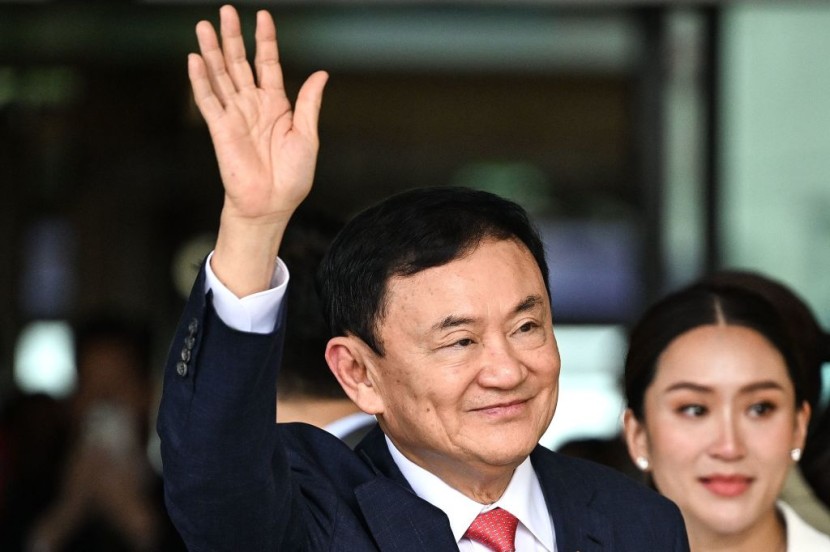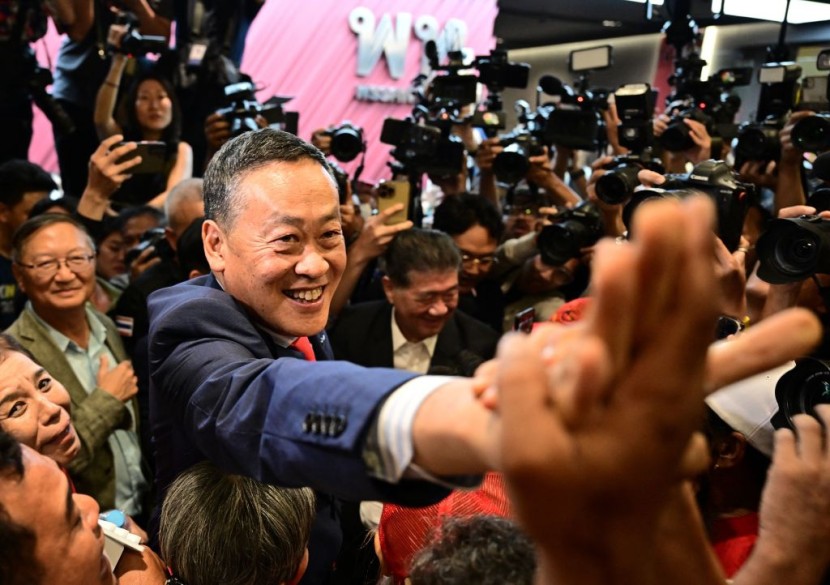Thailand's former prime minister Thaksin Shinawatra has been sentenced to eight years in prison merely hours after he arrived in Bangkok at the end of his 15-year self-imposed exile.

Supporters gathered to cheer his arrival at Bangkok's Don Mueang airport at 09:00 Tuesday (August 22), local time (02:00 UTC) via a private jet from Singapore, DW reported. Upon arrival, he performed the traditional Thai homage ritual before a portrait of King Maha Vajiralongkorn and Queen Suthida.
Thaksin's sister and fellow former prime minister Yingluck Shinawatra was also aboard the flight to Japan. "The day my brother has waited for has arrived," she said on Facebook.
After his arrival, police took him into custody, and was taken to the Thai Supreme Court for outstanding administrative and criminal charges, which Thaksin described as politically motivated.
The former prime minister has been a divisive figure in Thai politics since he was elected into power in 2001. He still holds some crucial influence in the local political scene despite being overthrown in a 2006 military coup.
Srettha Thavisin Chosen as New Thai PM
Meanwhile, The Thai parliament has chosen property tycoon Srettha Thavisin, from Thaksin's Pheu Thai Party, as the country's new prime minister after a three-month deadlock after it rejected the bid made by Move Forward Party's Pita Limjaroenrat to lead the country.
Move Forward got the most number of seats in its recent general elections last May, but is now relegated to official opposition status after Pheu Thai abandoned its progressive colleagues and formed a compromise coalition government with conservative and pro-military parties as an about-turn to its militant stance a few years ago. The change of alliances was purportedly in exchange for Thaksin's safe return to Thailand and a chance for royal pardon as he has been sentenced for outstanding corruption charges.
According to CNN, Srettha is not a member of parliament. The Thai constitution allows non-MP prime ministers to lead the country. His non-legislator status and green political record aside, he said in a social media statement he is committed to improving the Thai economy and helping its people to get a "better livelihood"

High Risk, Ambiguous Rewards
Several political analysts in the Asia-Pacific region say Pheu Thai's decision to move away from Move Forward and align itself with its sworn enemies in the political establishment was a high risk, but not necessarily coming with high rewards.
Despite being progressive, the University of Sydney senior lecturer Aim Sinpeng told Time Pheu Thai has become an old guard in Thai politics, which was a reversal and a risk in terms of the party's overall legacy.
"Pheu Thai will pay a heavy price," she said.
On the other hand, ISEAS-Yusof Ishak Institute visiting fellow Napon Jatusripitak added Move Forward was a risk not only to the conservative and pro-military parties but also to Pheu Thai because of the Move Forward's push to upend the whole Thai political establishment to its head, including the abolition of the country's controversial lese majeste policy or its royal defamation law.
"It's his last chance with Pheu Thai in shambles and his own credibility damaged," he said. "But his reputation as a pro-democracy figure has crumbled."
Nevertheless, Pheu Thai's compromise of having to ally with old rivals in exchange for a working government under Srettha's leadership would move the country forward as the deadlock has hurt its economy.









